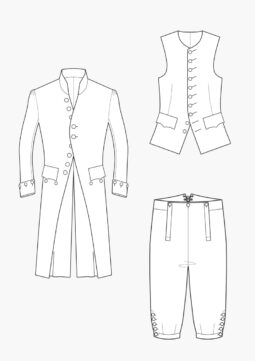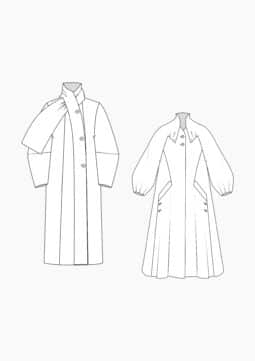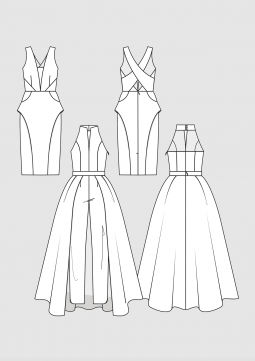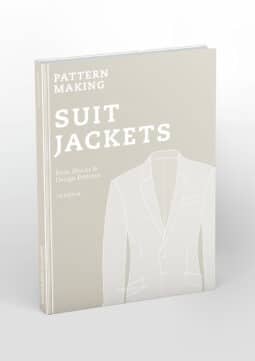Pattern Construction of a 1930s Coat Dress
Deutsch
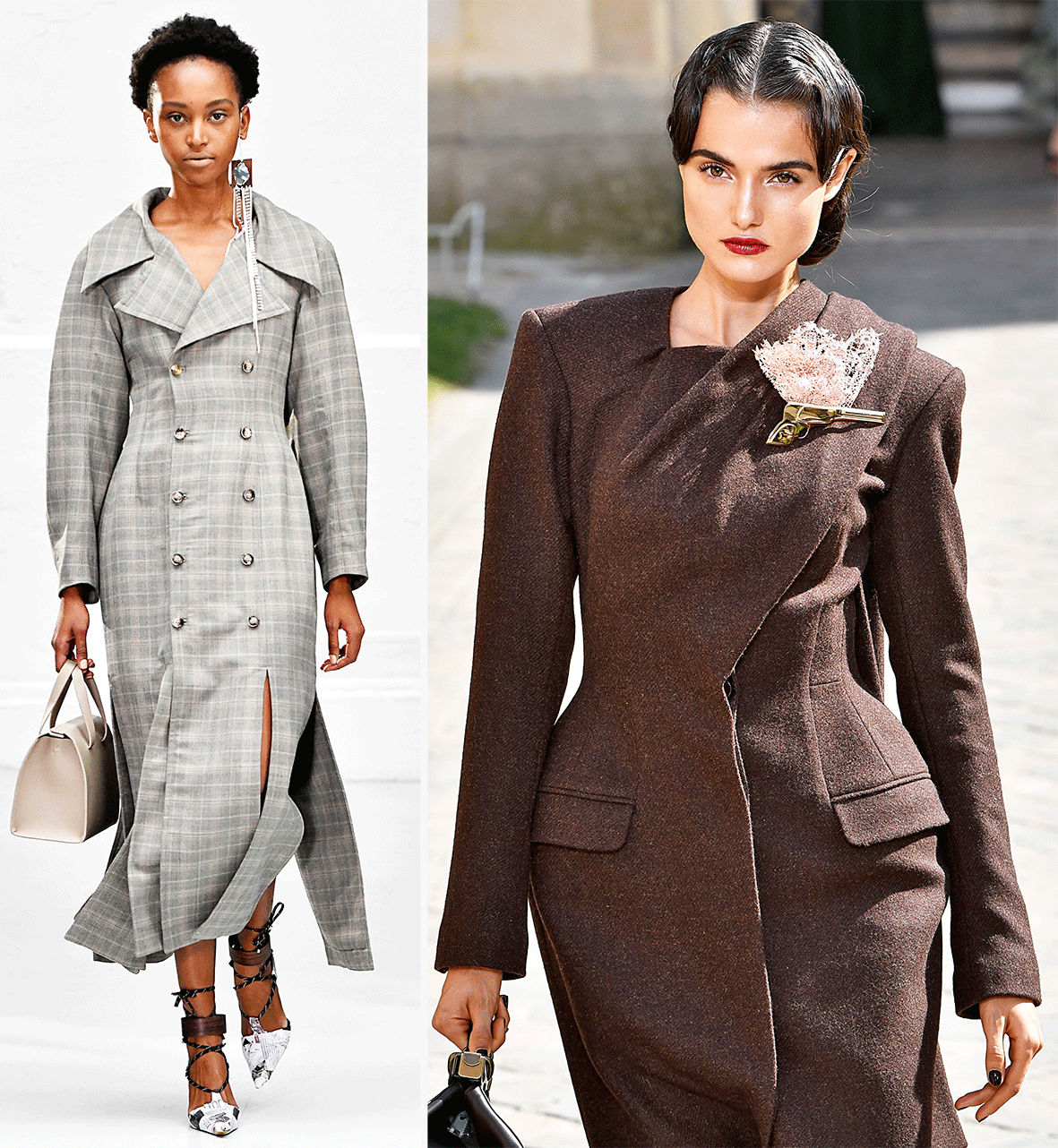
The coat dress is a dress that resembles a coat. It usually has a collar or even a lapel and can be opened by a front closure. It differs from the related shirt blouse dress by the choice of fabric. A coat dress is usually sewn from heavier fabrics (coat fabrics). The modern coat dress first appeared in 1910 and was a very popular item of women’s fashion in the first half of the twentieth century. Coat elements such as belts, flap pockets and large fabric buttons are often used in the design of a coat dress.
Pattern Construction of a Coat Dress
Template: Basic Dress Pattern in Size 40 with matching One-Piece Sleeve
This article is an extract from our magazine Rundschau for women 9.2017. Among many other things this issue includes the cutting techniques of three different shirt-dresses.
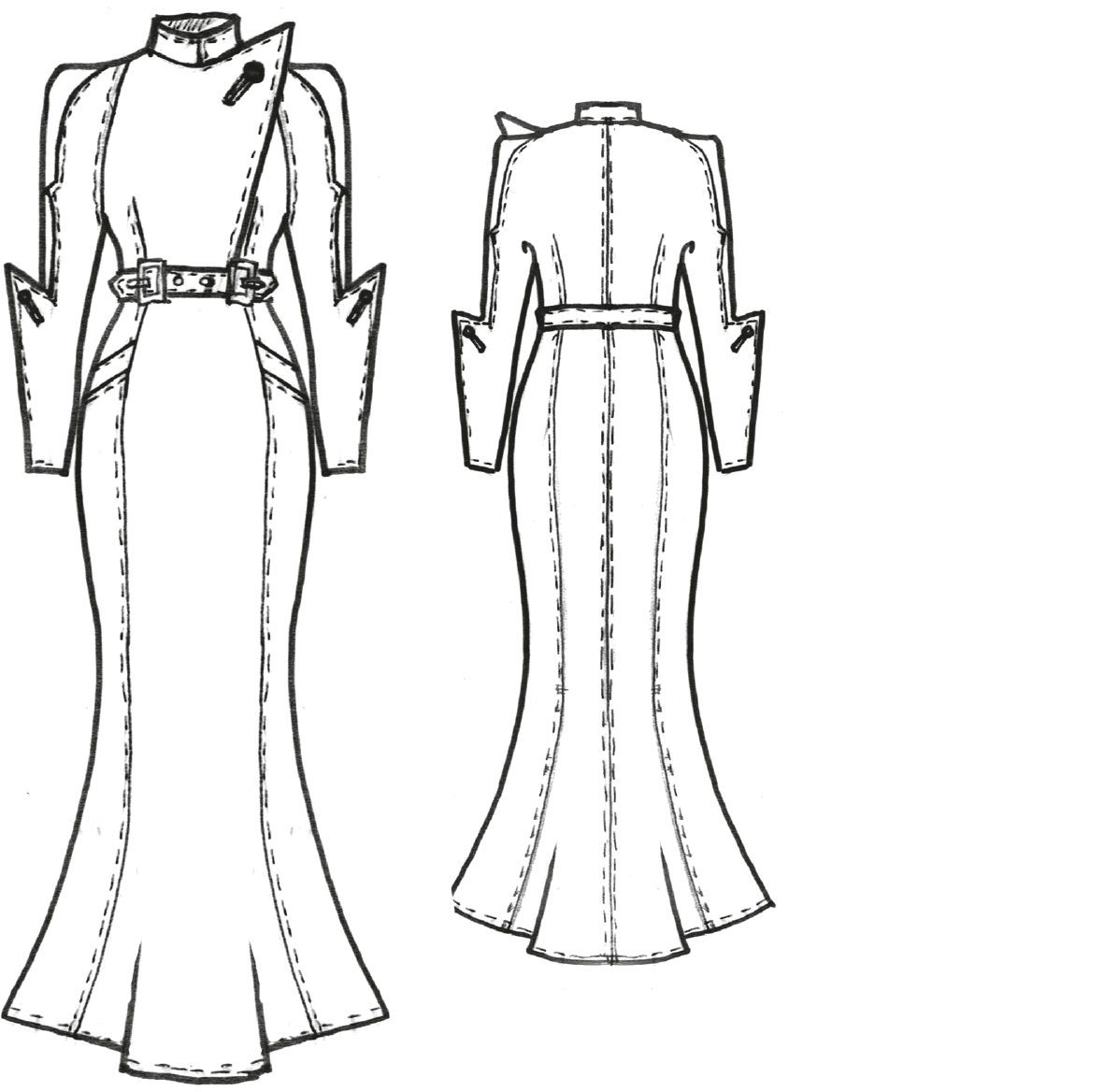
Front and Back Pattern
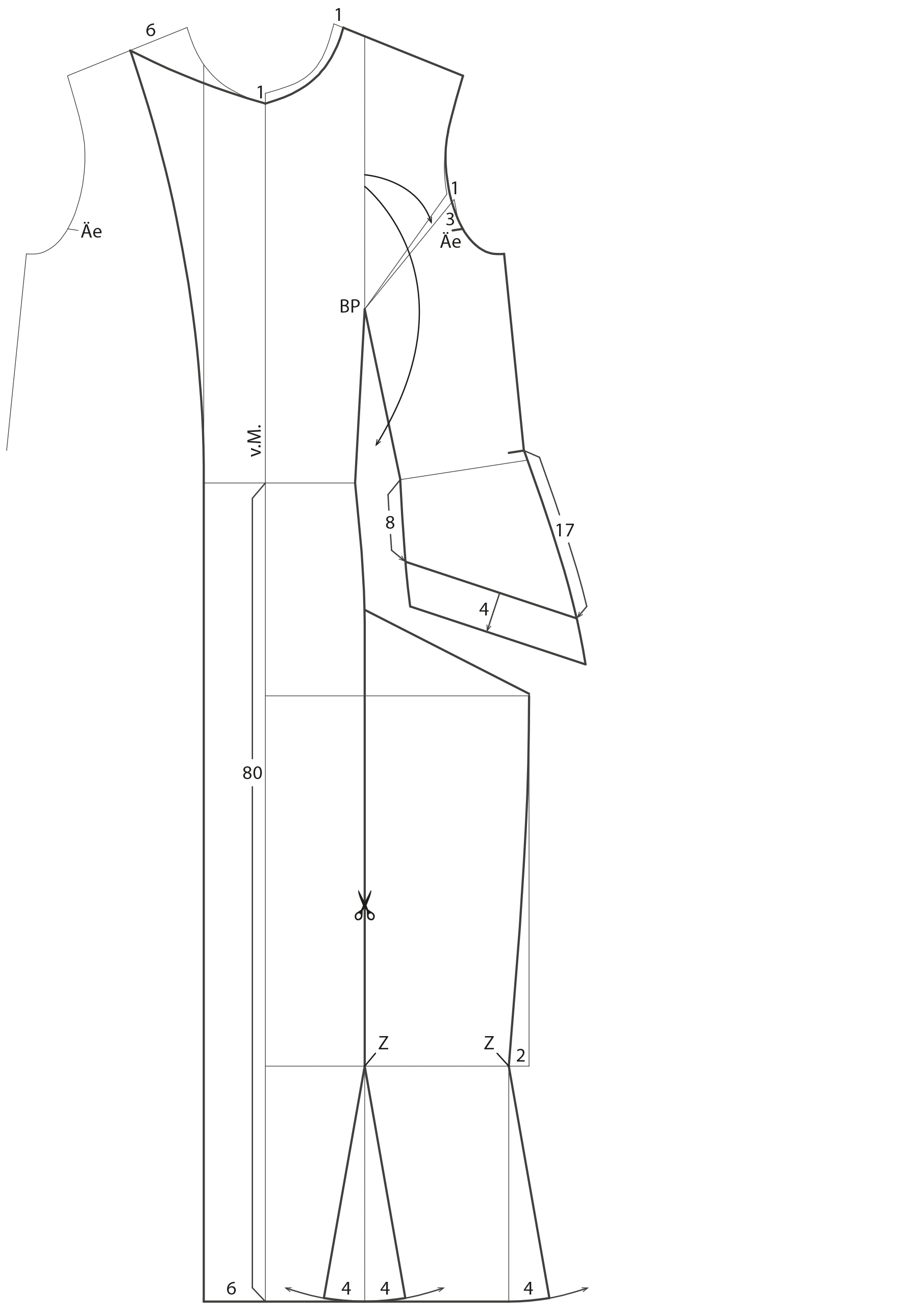
Mark the finished length at the centre front and centre back with 80 cm below the waist.Measure 57 cm below the waist and taper the sideseam 2 cm each side. Draw a circular arc over the sideseam length with pivot points (Z) and extend the hem 4 cm each side at the sideseam and the panel seam. Open the front armhole 1 cm. Mark the pocket entry 8 cm below the waist at the dart and 17 cm below the waist at the sideseam. Draw the slanted pocket entry. Separate the front pattern pieces at the pocket entry, close the remaining bust dart and add 4 cm for the pocket backing.
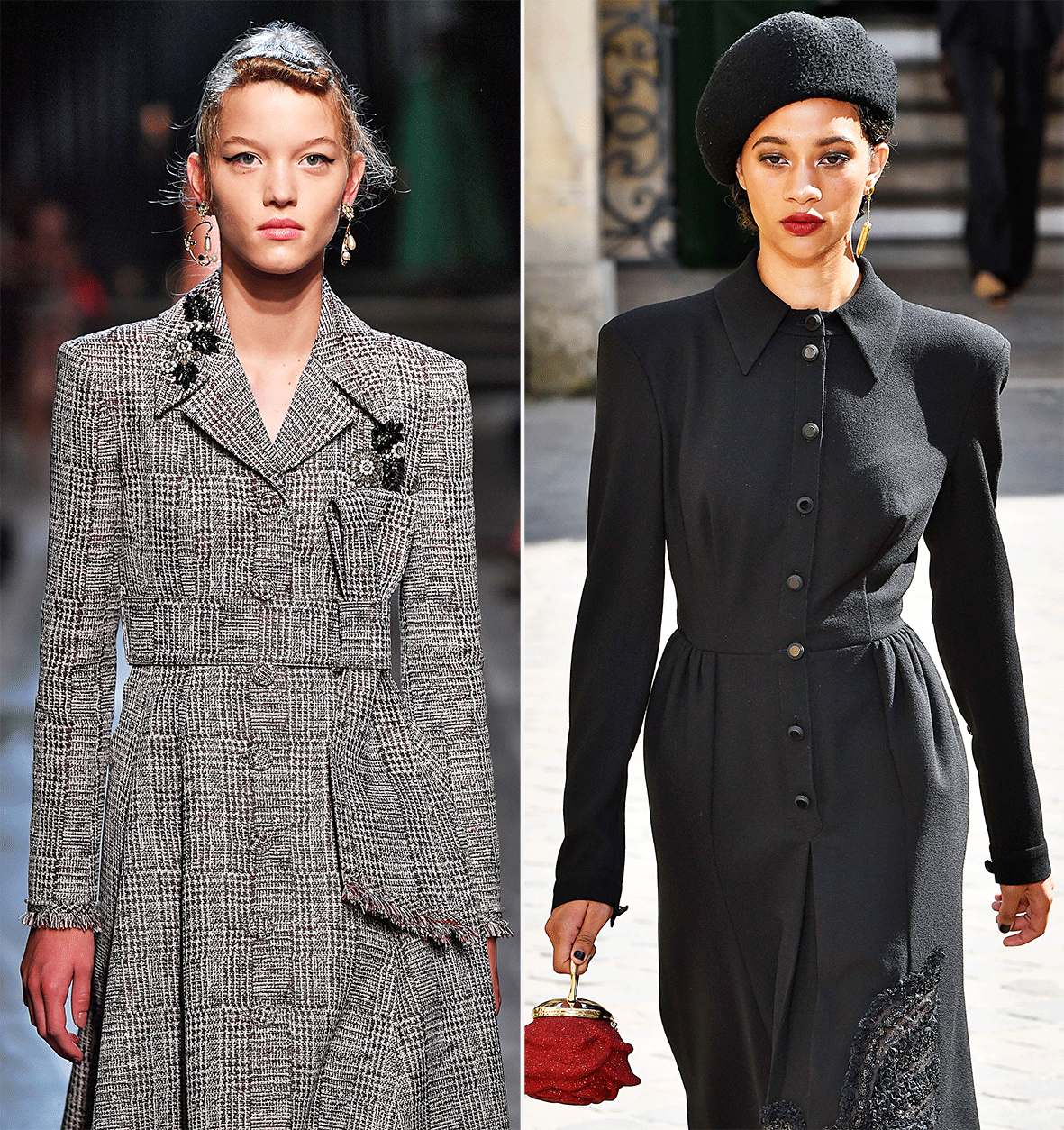
Lower the neckline 1 cm at the shoulder and at the centre front. Lower the neckline 0.5 cm at the centre back. Draw the new neckline. Add 6 cm overlap parallel to the centre front. Mirror the upper front bodice and shoulder area and draw the pointed overlap as shown in the illustration.
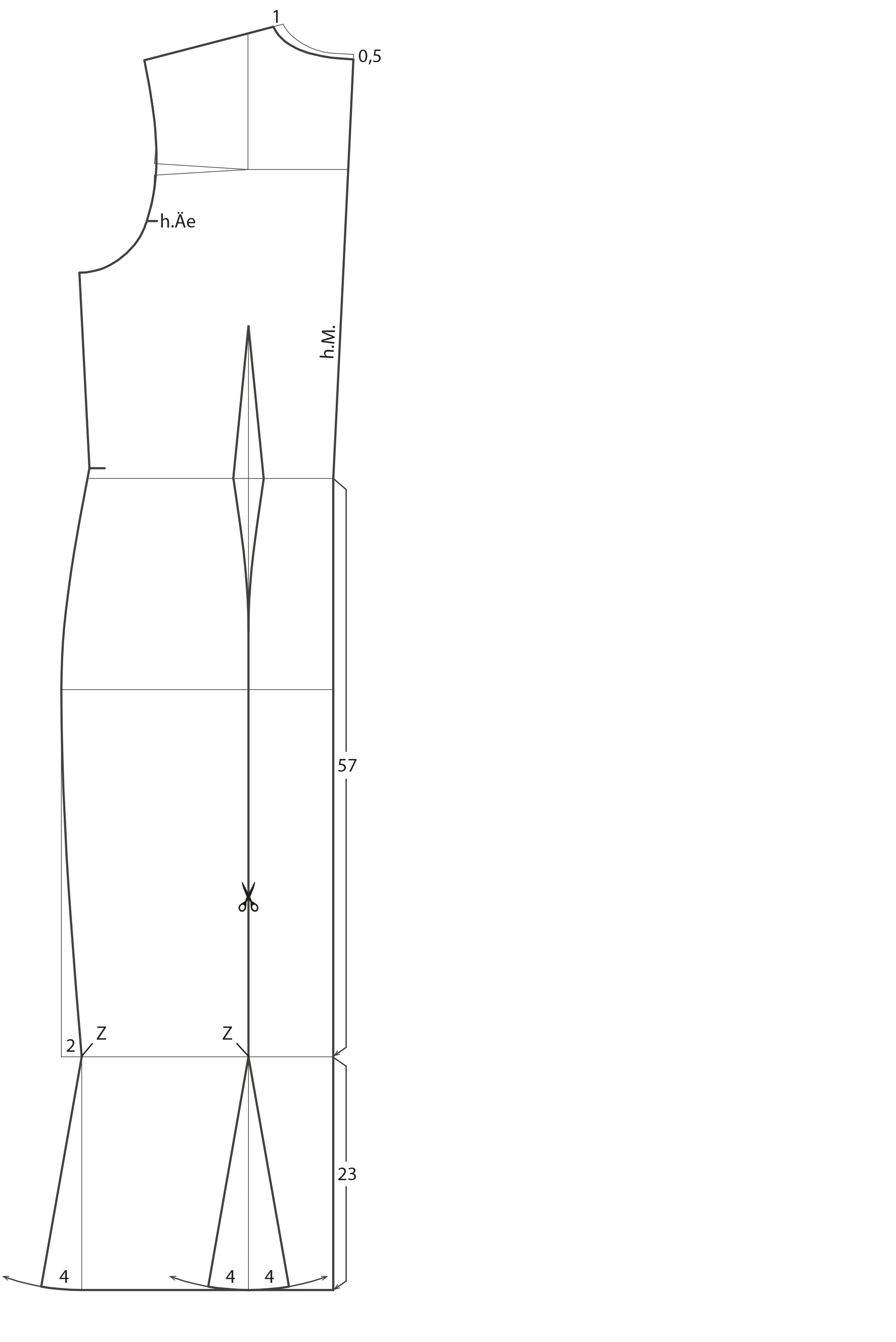
Preparation Sleeve
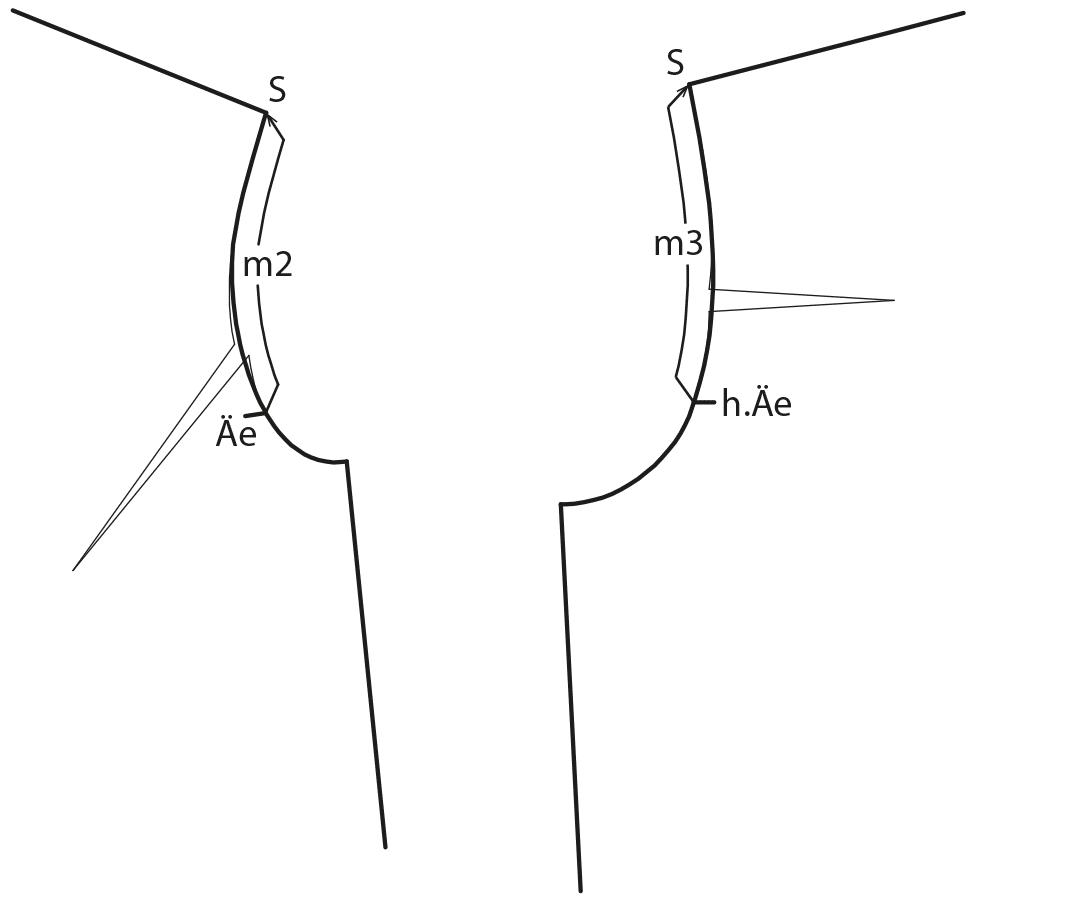
Draw a vertical cutting line from the elbow dart to the sleeve cap. Measure the distance from the cutting line to the shoulder point (m1) and transfer this amount to the left (ü1). Draw u cutting line from this point to the hem as shown in the illustration. Open the sleeve cap 0.5 cm less than the armhole. Raise the sleeve cap 0.5 cm to 1 cm and draw the new sleeve cap line. Draw the overarm seam from the shoulder point to the hem. Measure the front armhole curve from the front armhole notch to the shoulder point (m2) and transfer this amount plus 0.5 cm to the sleeve cap (ü2 + 0.5).
Also, measure the back armhole curve from the back armhole notch to the shoulder point (m3) and transfer this amount plus 0.5 cm to the sleeve cap (ü3 + 0.5). Draw the overarm seam slightly curve to the 10-cm point as shown. Separate the sleeve pieces at the overarm seam. Equalize the seam lengths.
You can find many more pattern instructions and patterns for sewing dresses in our online shop.


